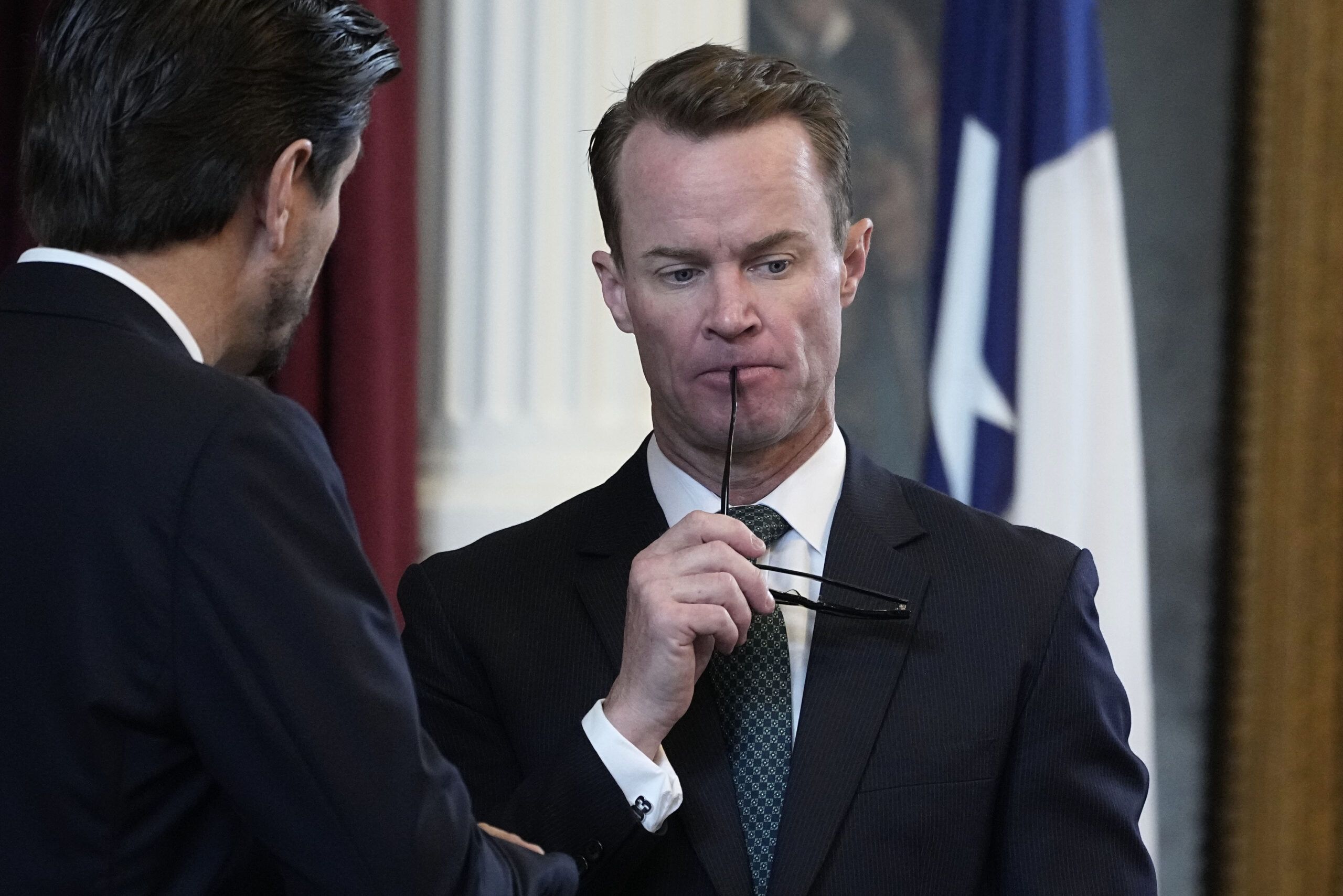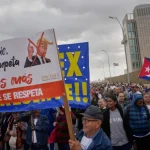

Texas House Speaker Dade Phelan survived his primary challenge on Tuesday, paving the way for another term as one of the state’s top legislators despite efforts from those in his own party to oust him from his position.
Phelan narrowly defeated former Orange County Republican Party Chairman David Covey after garnering 50.7% of the vote to Covey’s 49.3% with nearly all the ballots counted.
Phelan’s victory comes despite receiving fewer votes than Covey during the state’s primary in March, which catapulted the pair into a runoff after neither candidate secured more than 50% of the vote. The victory also comes after state Attorney General Ken Paxton endorsed Phelan’s challenger after the House speaker oversaw Paxton’s impeachment trial last year.
Although Phelan had the support of former state House speakers Dennis Bonnen and Joe Straus, as well as former Gov. Rick Perry, the House speaker has faced pushback in recent months from members of his own party. Phelan was censured by the Texas Republican Party because of his vote to impeach Paxton, marking only the fourth time in state history a sitting speaker has been censured.
CLICK HERE TO READ MORE FROM THE WASHINGTON EXAMINER
Phelan was also targeted for his “present” vote on Gov. Greg Abbott’s signature school voucher program that ultimately failed. Abbott vowed to oust the lawmakers who opposed the program, which would have allowed the state to give money to families to pay for private schooling.
Phelan’s victory comes after months of contention, with the race becoming one of the most expensive runoffs in the 2024 cycle. Both candidates spent roughly a combined $5.4 million throughout their campaigns, which excludes money spent by outside groups.







